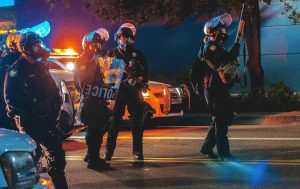In a recent development that has caught the attention of both sports fans and the wider public, Patrick Mahomes Sr., the father of NFL superstar quarterback Patrick Mahomes II, has been arrested on charges of driving while intoxicated (DWI). This marks the third such incident for Mahomes Sr., raising concerns about his behavior and its potential impact beyond his personal life.
Incident Details
The arrest occurred late Saturday night when local law enforcement officers responded to a report of erratic driving. Upon stopping the vehicle, officers identified the driver as Patrick Mahomes Sr. and determined that he was operating the vehicle under the influence of alcohol. The specifics of the field sobriety tests and any breathalyzer results have not been made public, but the arrest was made based on the officers’ assessment of Mahomes Sr.’s condition at the scene.
Legal Consequences
As this is Patrick Mahomes Sr.’s third DWI arrest, he faces significant legal repercussions under state law, which typically imposes harsher penalties for repeat offenses. These can range from increased fines and longer license suspensions to mandatory jail time and enrollment in alcohol education programs. The exact charges and potential penalties will depend on the details of the arrest and Mahomes Sr.’s previous DWI convictions.
Family Response
The Mahomes family has yet to release an official statement regarding the arrest. However, it is expected that they will address the situation in due time, likely expressing support for Mahomes Sr. while also acknowledging the seriousness of the charges. Patrick Mahomes II, known for his leadership on and off the field, may face questions about his father’s arrest and how it affects him personally and professionally.
Broader Implications
The arrest of Patrick Mahomes Sr. brings to light the ongoing issue of DWI and its consequences, not only for the individuals involved but for their families and communities as well. It serves as a reminder of the importance of responsible behavior and the potential for personal actions to have a wider impact. For public figures and their relatives, such incidents can also lead to discussions about the role of personal conduct in the context of public perception and responsibility.






